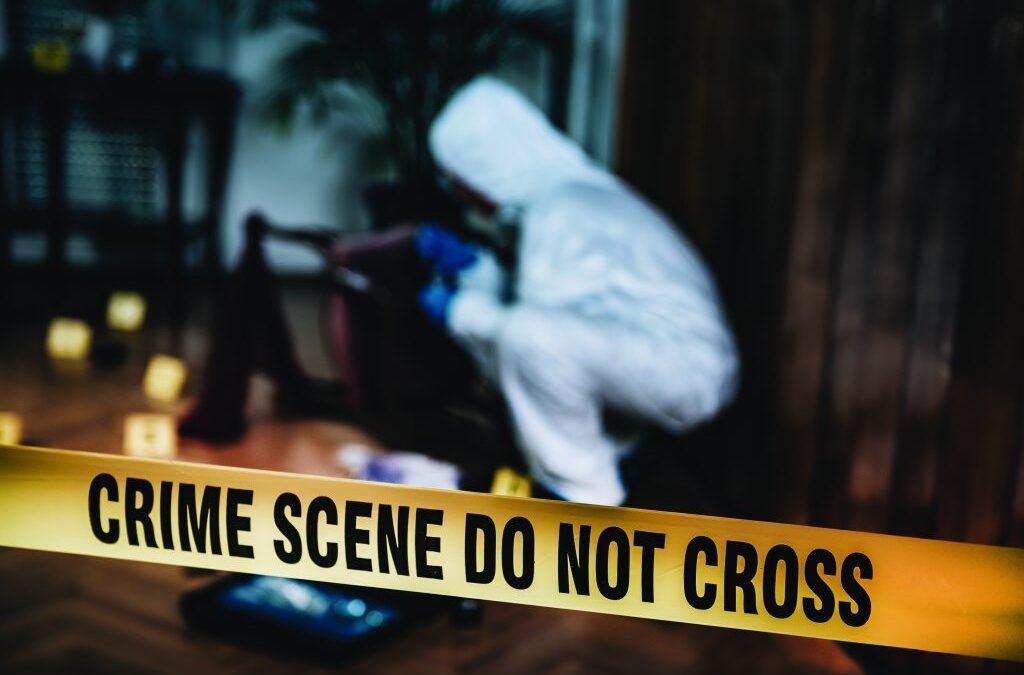When the unthinkable occurs, and a crime scene cleaners, most people think of the police, detectives, and forensic experts. However, there is another group of professionals whose work is crucial but often goes unnoticed: crime scene cleaners. These individuals are responsible for restoring scenes of violence, trauma, and death to their original state, ensuring that they are safe and habitable once more. Their job is not only about cleaning but also about compassion, professionalism, and meticulous attention to detail.
What Do Crime Scene Cleaners Do?
Crime scene cleaners are tasked with the daunting job of cleaning and sanitizing scenes where crimes, accidents, or other traumatic events have occurred. Their work involves the removal of blood, bodily fluids, and other potentially infectious materials. They handle biohazardous substances, ensuring that these areas are thoroughly disinfected and safe for future use. This process requires specialized training and equipment, as well as a deep understanding of the risks involved.
The Importance of Biohazard Cleanup
Biohazard cleanup is a critical aspect of crime scene cleaning. Bloodborne pathogens and other contaminants pose serious health risks if not properly managed. Professional crime scene cleaners are trained to handle these dangers and use industry-standard procedures to mitigate any risk of infection. They use personal protective equipment (PPE), industrial-grade cleaning agents, and advanced techniques to decontaminate affected areas.
Training and Certification
Crime scene cleaners must undergo extensive training and certification to ensure they are prepared for the complexities of the job. This includes understanding the regulations surrounding the disposal of biohazardous waste, mastering the use of specialized cleaning agents, and learning how to handle emotional and psychological stress. Certifications from organizations such as the Occupational Safety and Health Administration (OSHA) and the National Institute of Decontamination Specialists (NIDS) are often required.
Tools of the Trade
The tools used by crime scene cleaners are as varied as the situations they encounter. They employ a range of cleaning agents, from bleach and disinfectants to enzymatic cleaners designed to break down organic material. Additionally, they use equipment such as HEPA vacuums, ozone machines, and air scrubbers to remove contaminants from the air. Personal protective gear, including suits, gloves, masks, and eye protection, is also essential.
Emotional and Psychological Challenges
Cleaning up after a traumatic event is not only physically demanding but also emotionally taxing. Crime scene cleaners often witness the aftermath of violent crimes, suicides, and accidental deaths. This exposure can lead to emotional fatigue and stress. It is crucial for these professionals to have access to psychological support and coping strategies to manage the emotional burden of their work.
The Role of Compassion and Respect
Despite the grim nature of their work, crime scene cleaners approach their job with a deep sense of compassion and respect for the victims and their families. They often work discreetly and sensitively, understanding the emotional toll such events take on those involved. Their goal is to restore the affected area as quickly and thoroughly as possible, allowing families and communities to begin the healing process.
Ensuring Safety and Compliance
Crime scene cleaners must adhere to strict safety and regulatory standards to protect themselves and others. They follow protocols for the proper disposal of biohazardous waste and ensure that all cleaning processes meet local, state, and federal regulations. Compliance with these standards is essential to prevent the spread of infectious diseases and to guarantee a safe environment.
Case Studies and Real-Life Scenarios
Real-life scenarios highlight the importance and complexity of crime scene cleaning. From cleaning up after a violent crime to restoring a property after a natural disaster, each case presents unique challenges. These situations require a tailored approach, combining technical expertise with empathy and professionalism.
The Future of Crime Scene Cleaning
As awareness of the importance of crime scene cleaning grows, the industry continues to evolve. Advances in technology and cleaning methods, along with increased recognition of the psychological support needed for these professionals, are shaping the future of the field. Crime scene cleaners will continue to be essential in maintaining public health and safety, providing an invaluable service to communities in their most difficult times.
Crime scene cleaners play a vital yet often overlooked role in our society. Their work ensures that the aftermath of traumatic events is handled with the utmost care, professionalism, and respect. Through rigorous training, specialized equipment, and a compassionate approach, these professionals restore safety and peace of mind to those affected by tragedy. As the field continues to develop, the dedication and resilience of crime scene cleaners will remain a cornerstone of their essential service.

